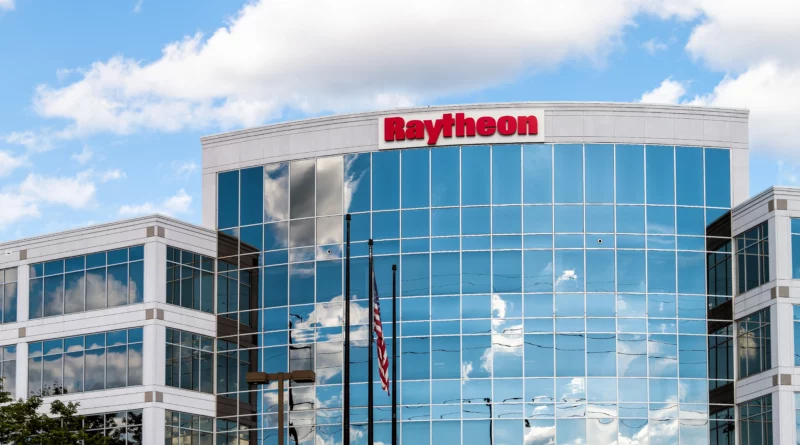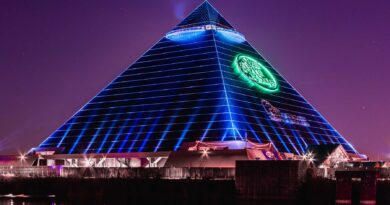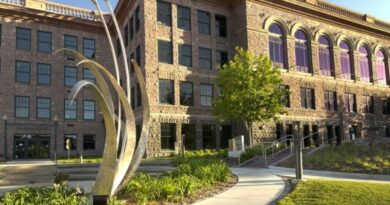History of Raytheon Technologies Corporation Founded in Cambridge Massachusetts
Raytheon Technologies Corporation, a cornerstone of the defense and aerospace industry, began its journey in Cambridge, Massachusetts, nearly a century ago. From its humble beginnings as an electronics company, Raytheon has grown into a global leader in advanced technology and defense systems. This article explores the origins, evolution, and impact of Raytheon, highlighting its significant contributions to technological innovation and national security.
Early Beginnings
Raytheon was founded in 1922 by Laurence K. Marshall, Vannevar Bush, and Charles G. Smith. The trio, driven by a shared interest in electronics and engineering, established the American Appliance Company in Cambridge, Massachusetts. Their initial focus was on developing refrigeration technology, but the company quickly pivoted to electronics, recognizing the vast potential of the burgeoning field.
In 1925, the company was renamed Raytheon, derived from the Greek words “ray” and “theon,” meaning “light of the gods.” This name change reflected their new focus on electronics and their pioneering work in the field of radio technology. One of Raytheon’s early successes was the development of the gaseous rectifier tube, which significantly improved radio receiver performance by converting alternating current to direct current more efficiently.
Growth and Innovation
The 1930s and 1940s were transformative decades for Raytheon. The company diversified its product lines, delving into microwave and radar technology. During World War II, Raytheon played a critical role in the development and production of radar systems for the U.S. military. These systems were instrumental in the Allied war effort, providing a significant tactical advantage.
One of Raytheon’s most notable contributions during this period was the development of the magnetron, a key component in radar technology. The magnetron’s ability to generate microwaves revolutionized radar systems, making them more effective and reliable. This innovation not only solidified Raytheon’s reputation as a leader in electronics but also laid the groundwork for future advancements in microwave technology.
Post-War Expansion
After World War II, Raytheon continued to expand its technological capabilities and market reach. The company entered the commercial electronics market, producing a wide range of consumer products, including televisions and microwave ovens. Raytheon’s microwave ovens, branded as the “Radarange,” were among the first commercially available microwave ovens, revolutionizing the way people cooked and prepared food.
In the 1950s and 1960s, Raytheon shifted its focus back to defense and aerospace, capitalizing on the Cold War’s demand for advanced military technology. The company developed a range of missile systems, including the AIM-7 Sparrow and the Patriot missile system. These innovations cemented Raytheon’s position as a key player in the defense industry.
Strategic Acquisitions and Mergers
Raytheon’s growth strategy included a series of strategic acquisitions and mergers, which expanded its capabilities and market presence. In 1997, Raytheon acquired Hughes Aircraft Company, significantly enhancing its expertise in radar and missile systems. This acquisition brought together two industry giants, creating a powerhouse in defense technology.
The merger with United Technologies Corporation in 2020 to form Raytheon Technologies marked another milestone in the company’s history. This merger combined Raytheon’s defense expertise with United Technologies’ strengths in aerospace, resulting in a diversified portfolio that spans both sectors. The newly formed Raytheon Technologies became one of the largest aerospace and defense companies in the world, with a wide range of products and services.
Technological Advancements and Contributions
Raytheon’s commitment to innovation has led to numerous technological advancements that have had a profound impact on national security and commercial markets. Some of the company’s most significant contributions include:
- Radar Technology: Raytheon’s advancements in radar technology have been instrumental in both military and civilian applications. The company’s radar systems are used in air traffic control, weather monitoring, and maritime navigation.
- Missile Systems: Raytheon is a leading developer of missile systems, including the Patriot, Tomahawk, and Standard Missile series. These systems provide critical defense capabilities to the U.S. and allied militaries.
- Cybersecurity: Recognizing the growing importance of cybersecurity, Raytheon has developed advanced solutions to protect critical infrastructure and national security assets from cyber threats.
- Space Technology: Raytheon has been involved in numerous space programs, providing satellite systems, sensors, and communications technology for both civilian and military applications.
Economic and Community Impact
Raytheon’s influence extends beyond its technological contributions. The company has had a significant economic impact on the regions where it operates, providing high-paying jobs and supporting local economies. In Cambridge, Massachusetts, Raytheon’s founding and early operations contributed to the city’s reputation as a hub of innovation and technology.
Raytheon is also committed to corporate social responsibility, supporting various educational and philanthropic initiatives. The company invests in STEM (science, technology, engineering, and mathematics) programs, scholarships, and community development projects, fostering the next generation of innovators and engineers.
Challenges and Future Outlook
Like any major corporation, Raytheon has faced its share of challenges. The defense industry is subject to changing political and economic conditions, requiring companies to adapt and innovate continually. Raytheon’s ability to navigate these challenges has been a testament to its resilience and strategic vision.
Looking to the future, Raytheon Technologies is well-positioned to continue its legacy of innovation and leadership. The company’s focus on emerging technologies, such as artificial intelligence, autonomous systems, and hypersonics, ensures that it remains at the forefront of the defense and aerospace industries.
Conclusion
Raytheon’s journey from its founding in Cambridge, Massachusetts, to becoming a global leader in defense and aerospace is a story of vision, innovation, and resilience. The company’s contributions to technology and national security have had a lasting impact, shaping the modern world in countless ways. As Raytheon Technologies continues to evolve and address new challenges, its legacy of excellence and commitment to innovation will undoubtedly endure.
Discover more from City Towner
Subscribe to get the latest posts sent to your email.




